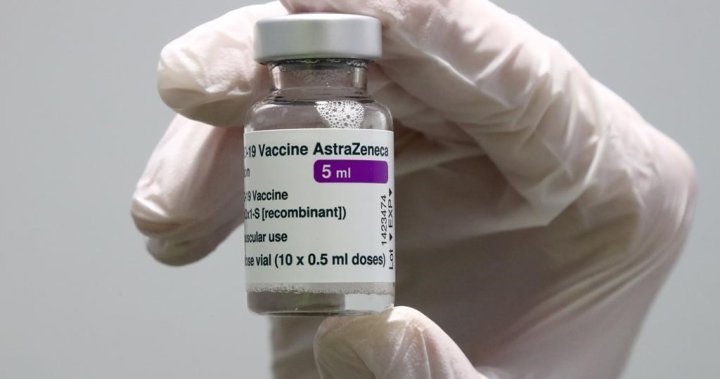
The Friday death of Russian opposition leader Alexei Navalny has cranked up the pressure on House GOP leaders to pass another round of aid to Ukraine to counter Moscow’s aggression amid allegations that an emboldened Russian President Vladimir Putin had a hand in Navalny’s demise.
Supporters of Kyiv have argued for months that a failure of Congress to prop up the beleaguered U.S. ally would not only risk the fall of a sovereign Ukraine but also send a signal to the world that Washington can’t be relied upon to defend democracy in the face of belligerent autocrats.
In the wake of Navalny’s death, those warnings have become only more pronounced.
“The world is watching and Putin must be punished,” Rep. Brian Fitzpatrick (R-Pa.) said in a statement. “The U.S. Congress must pass aid to Ukraine to defend democracy, because a thug like Putin won’t stop and will murder anyone who stands in his way.”
President Biden was even more biting, admonishing House Republicans for leaving Washington on Thursday for a long, 12-day recess without securing an agreement on new Ukraine aid.
“The failure to support Ukraine at this critical moment will never be forgotten. It’s going to go down in the pages of history,” Biden said at the White House.
“Two weeks! What are they thinking? My God, this is bizarre,” he continued. “And it’s just reinforcing all the concern, and almost — I won’t say panic — but real concern about the United States being a reliable ally. This is outrageous.”
The Senate passed a massive foreign-aid package Tuesday providing $60 billion for Ukraine, largely in weapons and other military supplies, amid warnings that Kyiv’s forces are running out of ammunition to fight the invading Russian forces. The vote was a lopsided 70-29, with 22 Republicans supporting the bill.
Yet Speaker Mike Johnson (R-La.) has refused to consider it, arguing Congress shouldn’t spend billions of dollars defending another country’s borders unless it’s also ready to secure its own. He’s demanding that any new Ukraine funds be accompanied by tougher anti-migrant policies at the U.S.-Mexico border.
That position aligns Johnson squarely with former President Trump and many conservatives in the House GOP conference, which has shifted in recent years toward a more isolationist posture under the influence of Trump’s “America First” agenda. At least one of those lawmakers — Rep. Marjorie Taylor Greene (R-Ga.) — has threatened to launch an effort to remove Johnson from power if he brings Ukraine aid to the floor.
Yet there are scores of House Republicans ready to support more Ukraine aid, even in the form of the Senate bill. And Navalny’s death has only stirred a new urgency in those more moderate lawmakers, who are growing impatient with the conservatives in their own party standing in the way of additional assistance.
“It more clearly shows how bad Putin is,” Rep. Don Bacon (R-Neb.) told The Hill in a text message Friday. “Some [in the] GOP are in denial. I hope this is some cold water for a few and wakes them up.
“I hope it wakes them up to the truth.”
Rep. Greg Murphy (R-N.C.) delivered a similar admonition, saying GOP leaders should abandon the idea of changing border policy — a job he says is better left to the executive branch — and focus on passing the foreign aid as quickly as possible. Navalny’s death, he added, should put pressure on Johnson and the House to do just that.
“The Border Crisis can be fixed by Executive Order TODAY. We need to fund Ukraine and Israel. Now,” he told The Hill in a text message Friday. “We are fighting for worldwide freedom against these tyrannical despots. We don’t need to get stuck on new legislation on the Border that is not going to happen.”
Navalny, 47, was the most prominent and influential of Putin’s Russian critics, having for years accused the president of corruption and other abuses of power. State officials said Navalny’s death — while imprisoned in Siberia on charges he and much of the West said were a form of political retribution — came of natural causes after he collapsed and lost consciousness after a walk. But few of Navalny’s allies — including those in Washington — are buying the official line.
“What has happened to Navalny is yet more proof of Putin’s brutality,” Biden said. “No one should be fooled.”
Trump and some of his conservative allies have cozied up to Putin in recent years. And amid the impasse over Ukraine aid, Democrats are accusing Johnson and his conservative conference of abandoning Kyiv for the sake of appeasing Trump, the favorite to win the GOP presidential nomination, who’s been stridently opposed to any more Ukraine funding ahead of November’s elections.
Even some of Ukraine’s most vocal GOP allies are acknowledging the outsized influence Trump has over the current debate.
“He’s got a lot of control over my party, no question about it,” Rep. Michael McCaul (R-Texas), chair of the Foreign Affairs Committee, said Friday. “Whatever he does say, it either would encourage, or motivate or give them cover.”
Johnson, for his part, says he’s supportive of sending more aid to Ukraine but has consistently demanded that any assistance for Kyiv be tied to domestic border security. The Speaker has also asked for accountability measures on the Ukraine aid and implored the Biden administration to provide its endgame strategy in the ongoing conflict.
On Friday — in a statement that called Putin “a vicious dictator” and claimed he is “likely directly responsible” for Navalny’s death — Johnson said “we must be clear that Putin will be met with united opposition.”
“As Congress debates the best path forward to support Ukraine, the United States, and our partners, must be using every means available to cut off Putin’s ability to fund his unprovoked war in Ukraine and aggression against the Baltic states,” he added.
The stalemate over Ukraine has prompted an urgent search for a Plan B from Kyiv’s congressional allies, who see U.S. support as imperative as Russia continues its assault.
Fitzpatrick led a group of eight bipartisan lawmakers in introducing an alternative emergency funding supplemental bill Friday morning, which includes aid for Ukraine, Israel, Taiwan and border security policy.
But despite its bipartisan nature, the package has virtually no chance of moving in the House, let alone the Senate, amid expected opposition on both sides of the aisle.
Conservatives will likely sound off on the legislation for excluding even tougher border security policies that were included in H.R. 2, the conference’s sweeping border package that cleared the House with no Democratic votes last year. There is also a growing contingent of GOP lawmakers who oppose more aid for Kyiv under any circumstances.
On the left, progressives are sure to howl at the removal of humanitarian aid for Gaza and Ukraine, which was included in the Senate package. And Democratic leaders are still holding out for a vote on the upper chamber’s bill.
“This is clear: Mike Johnson simply needs to put the bipartisan national security bill on the House floor for an up-or-down vote, and it will pass,” House Minority Leader Hakeem Jeffries (D-N.Y.) said Wednesday when asked about the impending bipartisan bill. “That’s it.”
But the introduction of the legislation — and bipartisan sponsorship — is adding to the pressure Johnson faces to move any aid for Ukraine, especially in the wake of Navalny’s death and as Kyiv’s war against Russia stretches into its third year.
“The death of Alexei Navalny should be a wake up call to everyone in Congress. We must act to secure our borders, defend our allies and stand up for the free world,” Rep. Mike Lawler (R-N.Y.), a co-sponsor of the alternative supplemental, wrote on X, the platform formerly known as Twitter.
Another option some Democrats are eyeing is using a discharge petition to force Ukraine aid to the floor. The procedural gambit requires backing from at least 218 lawmakers — a majority of the chamber — meaning bipartisan support will be required to circumvent GOP leadership.
Democrats currently have a “ripe” discharge petition with 213 signatures, a number that will likely increase by one when Rep.-elect Tom Suozzi (D-N.Y.) is sworn in later in the month.
Some Democrats are holding out hope that a handful of Republicans will join them to unlock a vote on aid for Kyiv.
“This is the way to do something bipartisan for our country’s national security and to stand by our allies,” said Rep. Gregory Meeks (N.Y.), the senior Democrat on the Foreign Affairs Committee, who is actively trying to convince Republicans to sign on.
But so far, no Republicans have voiced a willingness to get on board. And some of Ukraine’s GOP allies are warning that such a politically divisive effort could diminish the chances that an aid package passes at all.
“That would be fatal, because that would essentially take the Speaker out of power,” McCaul said. “I’ve told the Dems that’s the last option — the nuclear option. You shouldn’t do that.”
Laura Kelly and Brett Samuels contributed.






